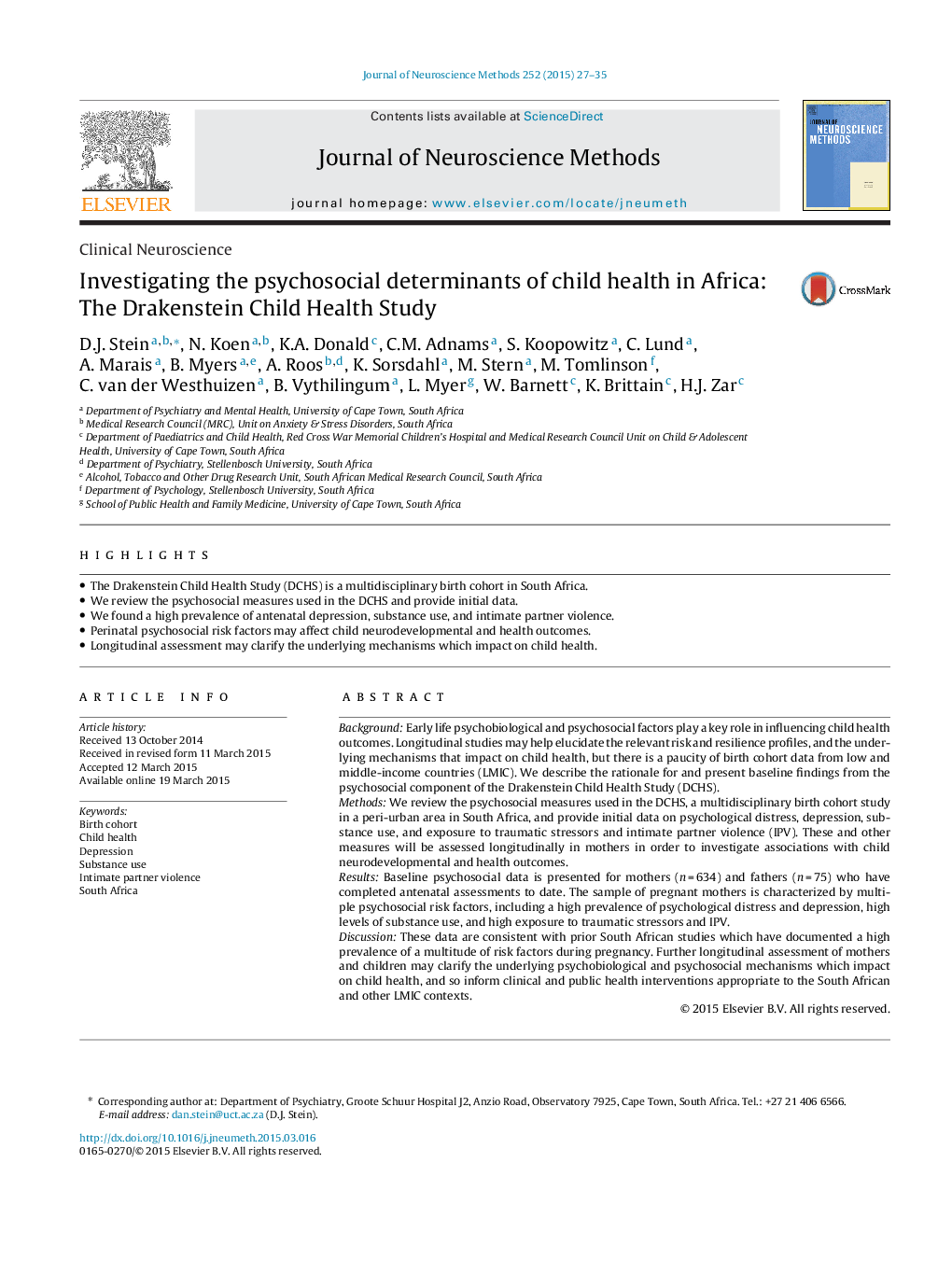| Article ID | Journal | Published Year | Pages | File Type |
|---|---|---|---|---|
| 4334903 | Journal of Neuroscience Methods | 2015 | 9 Pages |
•The Drakenstein Child Health Study (DCHS) is a multidisciplinary birth cohort in South Africa.•We review the psychosocial measures used in the DCHS and provide initial data.•We found a high prevalence of antenatal depression, substance use, and intimate partner violence.•Perinatal psychosocial risk factors may affect child neurodevelopmental and health outcomes.•Longitudinal assessment may clarify the underlying mechanisms which impact on child health.
BackgroundEarly life psychobiological and psychosocial factors play a key role in influencing child health outcomes. Longitudinal studies may help elucidate the relevant risk and resilience profiles, and the underlying mechanisms that impact on child health, but there is a paucity of birth cohort data from low and middle-income countries (LMIC). We describe the rationale for and present baseline findings from the psychosocial component of the Drakenstein Child Health Study (DCHS).MethodsWe review the psychosocial measures used in the DCHS, a multidisciplinary birth cohort study in a peri-urban area in South Africa, and provide initial data on psychological distress, depression, substance use, and exposure to traumatic stressors and intimate partner violence (IPV). These and other measures will be assessed longitudinally in mothers in order to investigate associations with child neurodevelopmental and health outcomes.ResultsBaseline psychosocial data is presented for mothers (n = 634) and fathers (n = 75) who have completed antenatal assessments to date. The sample of pregnant mothers is characterized by multiple psychosocial risk factors, including a high prevalence of psychological distress and depression, high levels of substance use, and high exposure to traumatic stressors and IPV.DiscussionThese data are consistent with prior South African studies which have documented a high prevalence of a multitude of risk factors during pregnancy. Further longitudinal assessment of mothers and children may clarify the underlying psychobiological and psychosocial mechanisms which impact on child health, and so inform clinical and public health interventions appropriate to the South African and other LMIC contexts.
